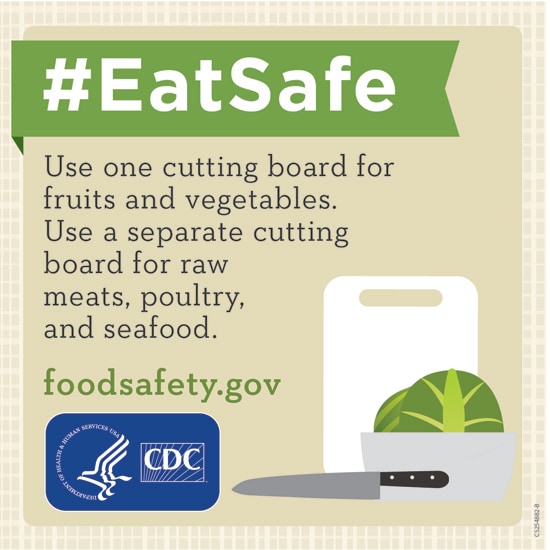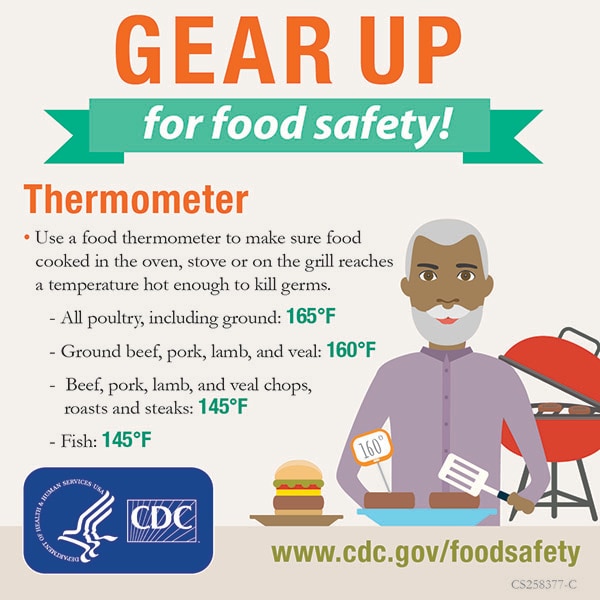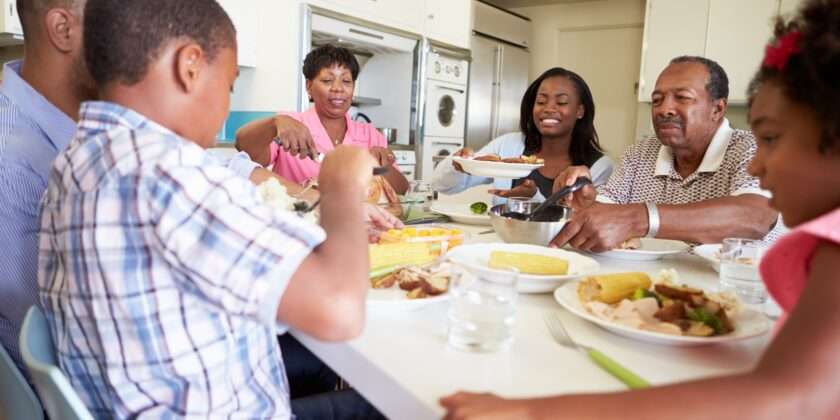“One of the very nicest things about life is the way we must regularly stop whatever it is we are doing and devote our attention to eating.” This quote by Luciano Pavarotti highlights the appreciation many people have for a good meal. With the holidays fast approaching, plenty of food will be cooked and consumed.
Sometimes food isn’t prepared and cooked properly, and the result is food poisoning. Each year, 1 in 6 Americans1 get sick from eating contaminated food. The most common symptoms of food poisoning include upset stomach, abdominal cramps, nausea and vomiting, diarrhea, fever, and dehydration. Symptoms may range from mild to severe and may differ depending on the germ2 that is making you sick. Severe cases of food poisoning can cause long-term health problems or death.
Who is more likely to get Food Poisoning?
Certain groups of people have a higher risk of food poisoning. Children younger than 5, pregnant women, adults over 65, and people with weak immune systems are more likely to get sick from contaminated food, and if they do get sick, the effects may be more severe3 .
Individuals in these groups should be particularly careful not to consume undercooked animal products. They should avoid soft French-style cheeses, pates, uncooked hot dogs and sliced deli meats, which have been sources of Listeria infections. People at high risk should also avoid alfalfa sprouts and unpasteurized juices.
What should you do if you think you have food poisoning?
See your doctor if you have:
- High fever (temperature over 101.5 F, measured orally)

- Blood in the stools
- Prolonged vomiting that prevents keeping liquids down (which can lead to dehydration)
- Signs of dehydration, including a decrease in urination, a dry mouth, and throat, and feeling dizzy when standing up.
- Diarrheal illness that lasts more than 3 days.
Do not be surprised if your doctor does not prescribe an antibiotic. Many diarrheal illnesses are caused by viruses and will improve in 2 or 3 days without antibiotic therapy. In fact, antibiotics have no effect on viruses, and using an antibiotic to treat a viral infection could cause more harm than good.
Follow these four simple steps for Food Safety
CLEAN
- Wash your hands and surfaces often. Germs can survive in many places around your kitchen, including your hands, utensils, and cutting boards.
- Rinse fresh fruits and vegetables under running water and always follow these four simple steps for food safety.
- Follow the five steps4 below to wash your hands the right way every time.
- Wet your hands with clean, running water (warm or cold), turn off the tap, and apply soap.
- Lather your hands by rubbing them together with the soap. Be sure to lather the backs of your hands, between your fingers, and under your nails.
- Scrub your hands for at least 20 seconds. Need a timer? Hum the “Happy Birthday” song from beginning to end twice.

- Rinse your hands well under clean, running water.
- Dry your hands using a clean towel or air dry them.
SEPARATE
- Raw meat, poultry, seafood, and eggs can spread germs to ready-to-eat foods—unless you keep them separate. It’s important to keep them separate, even after you’ve cleaned your hands and surfaces thoroughly.
COOK
- Cook to the right temperature5 . While many people think they can tell when food is “done” simply by checking its color and texture, there’s no way to be sure it’s safe without following a few important but simple steps. Use a food thermometer to ensure that foods are cooked to a safe internal temperature: 145°F for whole meats (allowing the meat to rest for 3 minutes before carving or consuming), 160°F for ground meats, and 165°F for all poultry.
CHILL
- Keep your refrigerator below 40°F and refrigerate foods properly. Germs can grow in many foods within 2 hours unless you refrigerate them. (During the summer heat, cut

Follow the five steps below to wash your hands the right way every time.
that time down to 1 hour.)
For more information on preventing food poisoning, check your steps at FoodSafety.gov6 .
“After a good dinner, one can forgive anybody, even one’s own relatives.” Oscar Wilde’s quote may or may not be true, but food poisoning will ruin your holiday meal. Be careful with your food.
Enjoyed this post? Share it and read more here. Questions? “Ask the Pharmacist a Question!” Jay Harold is always looking out for your health and wealth.




